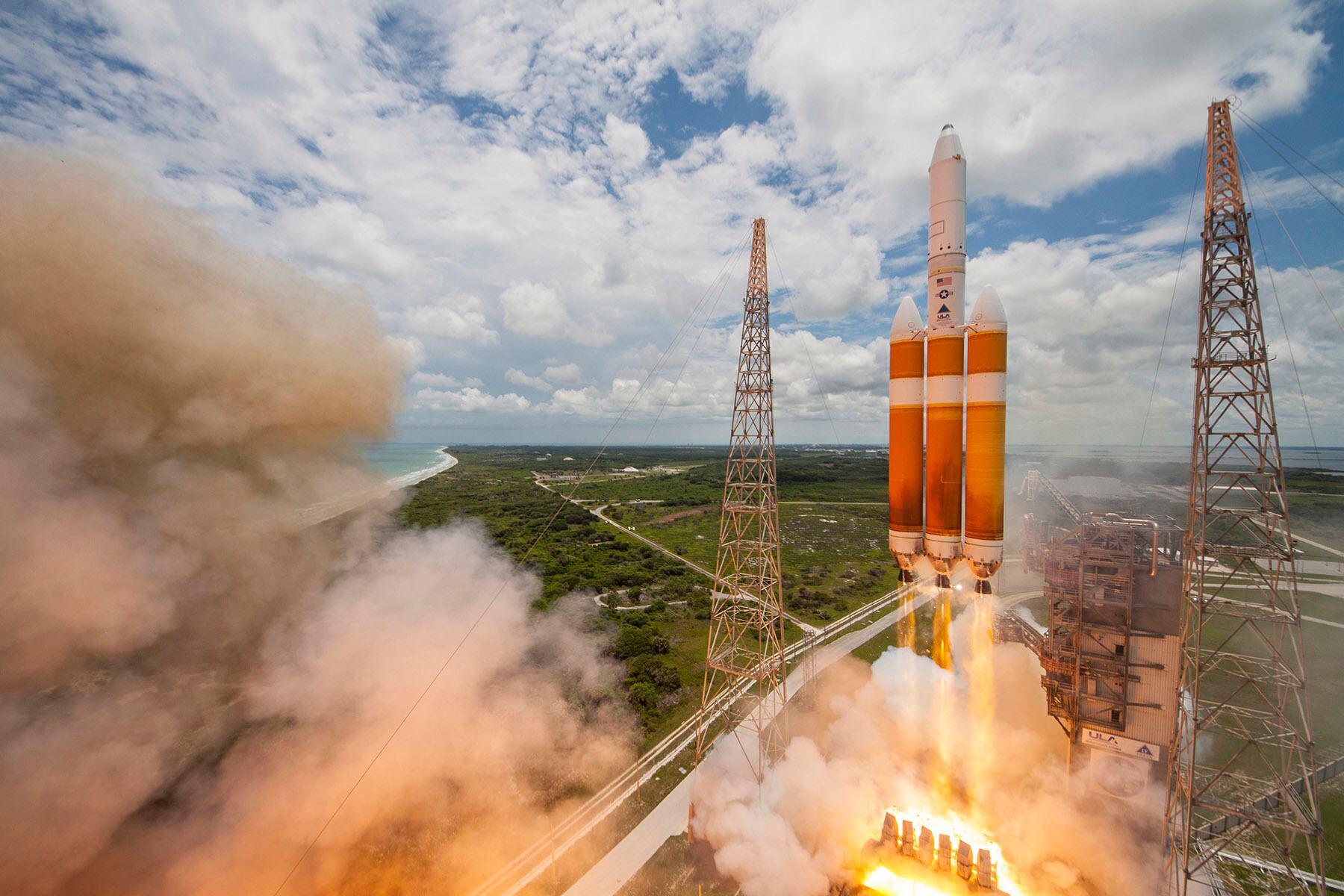For years, experts have warned that the jurisdictional firewalls between the intelligence community and the Pentagon over space assets were holding the United States back from harnessing its full capabilities on orbit.
Now, a new detente has been reached between the two sides, but whether this marks a new status quo or just another layer of bureaucracy remains to be seen.
Speaking at a meeting of the National Space Council Aug. 20, Joseph Maguire, acting director of national intelligence, announced that after “months” of analysis by the intel community and the Pentagon on how best to integrate with the new U.S. Space Command, a new group is being stood up to integrate the two sides.
“The intelligence community and Department of Defense have agreed to align U.S. Space Command and the [National Reconnaissance Office] into a new unified defense concept of operations at the National Space Defense Center,” Maguire said. “As part of U.S. Space Command, the National Space Defense Center is a joint DoD-intelligence community organization and will become the center of gravity for defending our vital interests in space."
RELATED

The National Space Defense Center was stood up several years ago as a rebranding of the Joint Interagency Combined Space Operations Center, or JICSpOC. The office is based at Schriever Air Force Base in Colorado.
“For the first time there will be a unified structure that fully integrates intelligence community and department of defense space defense plans, authorities and capabilities to ensure seamless execution of space defense systems.”
Notably, Maguire said that should a conflict extend into space, the National Reconnaissance Office will “take direction form the commander of U.S. Space Command and execute defensive operations based on a jointly developed playbook and informed by a series of exercises and wargames.“
In the past, the NRO has stridently fought against any effort to fall under the Pentagon; the issue was particularly acute in the last year thanks to President Donald Trump’s proposed Space Force, which some felt should include NRO.
Brian Weeden of the Secure World Foundation called the announcement a “big deal,” because putting all national security assets military and intelligence under a single command has always been a “big sticking point” for both the intel and military communities. But, he warned, “the devil’s always in the details.”
“They've been working for a few years now on trying to figure out what the response should be to a variety of different attacks. But then you have come up with a way to do the command and control across all those satellites, many of which have their own unique or custom ground systems,” he noted.
More mergers could come in the future. Some experts have advocated for designating a single entity to take charge of all military and space acquisitions, instead of the current fractured approach where the Air Force, NRO and Space Development Agency are all purchasing their own satellites.
Aaron Mehta was deputy editor and senior Pentagon correspondent for Defense News, covering policy, strategy and acquisition at the highest levels of the Defense Department and its international partners.








